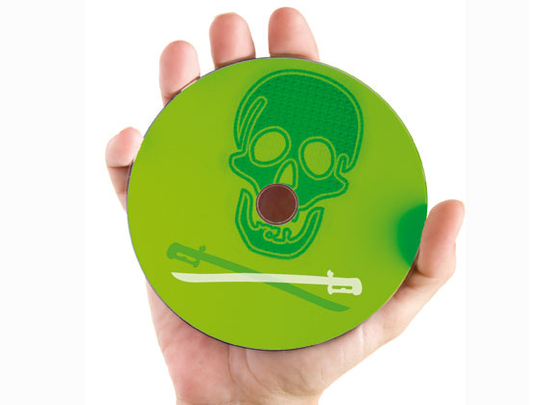
The kid gloves are well and truly off in the war on intellectual property rights theft in Saudi Arabia, which in recent months has reportedly seen a significant spike in the piracy of software and movies. This time out, industry groupings fighting the menace are intent on taking prisoners… literally.
They are now calling on the auth-orities to impose the maximum penalties on offenders, including, for the first time, to press ahead with jail terms.
All eyes are now riveted on a courtroom in the kingdom where legal proceedings are going on against two persons caught selling pirated movies. One of them has been raided as many as seven times and nearly 75,000 DVDs confiscated in the process.
The Board of Grievances (BoG) — part of the country's higher courts — is expected to deliver its verdict shortly on the cases, which anti-piracy groupings believe will serve as a litmus test of the extent Saudi authorities are willing to go to counter — and more pertinently stifle — all such illegal activities.
Scott Butler, CEO of the Arabian Anti-Piracy Alliance, is quite clear what sort of deterrence will work. "The AAA is seeking imprisonment as punishment in these particular cases because fines and penalties do not seem effective anymore," he said. "In the past, several fines have been imposed, but we have observed that this does not serve as a deterrent.
"The fact is that rights holders can never compete with pirate pricing, especially since the pirates do not incur any costs."
Dismal record
Indeed, Saudi Arabia's record in combating violations of intellectual property is dismally lower than other jurisdictions in the region, most notably the UAE's. Levying fines has done little to curb the enthusiasm of the offenders, and as the case above illustrates amply, many return to ply their trade with seeming impunity. The maximum fines of 100,000 riyals (Dh98,000) have been imposed only selectively, and consequently had no impact on street level activity.
"Due to the lack of deterrent sentencing, piracy rates are highest in Saudi Arabia," Butler said. He is realistic that a complete stamping out of the menace of piracy is not going to happen, but believes what's achievable is containment.
"In countries where the authorities' resolve is strong to combat it, piracy is effectively contained," he added.
And in regard to Saudi Arabia's situation, while "there are no official studies available that show losses, the number is estimated to be in millions of dollars," Butler said. "The biggest concern of the entertainment companies is no longer a matter of achieving profitable business, rather a matter of survival.
"It is unfortunate that several had to wind up their business as a result of piracy, which in turn has adversely impacted the country's economy."
Butler or the AAA is not alone in voicing an opinion that the threat of imprisonment can be the only true deterrent under the circumstances. The International Intellectual Property Alliance (IIPA) in a report issued late last year reckoned that the kingdom's piracy levels in the motion picture, music and recording and entertainment software to be above 90 per cent.
"The Board of Grievances has indicated that it would mete out prison sentences in appropriate cases, and if and when this is done, it will have a major deterrent impact in Saudi Arabia," the report added.
In effect, what the IIPA called for was nothing less than a "zero-tolerance policy toward street vendor piracy", the report added.
But as so often happens, a statement of intent need not always translate into action on the ground. Good intentions can always be compromised.
Anecdotal evidence from market observers suggests software and movie piracy actually shot up during the summer, with a weak economy acting as a disincentive for consumers to prefer the originals. It would then be an extension of what happened in 2009, when software piracy rates actually went up two percentage points to 54 per cent for estimated losses of $176 million.
However, aggravating an already dire situation is, ironically enough, the advances made in technology, notably that allow downloads from remote sites that fly under the radar of the authorities' observation posts.
"Technically, there is no difference between music files, DVDs and software products — all come in digital, machine-readable form and can therefore easily be downloaded," said Dr. Michael Krämer, an associate at the regional office of law firm Taylor Wessing.
The only difference, according to Krämer, relates to the file sizes. "For some time what saved the film and software industry from even higher piracy rates was the colossal amount of time required for a person to download a complex software product or even an entire movie," Krämer added. "With more and more bandwidth becoming available to end-users, this layer of protection has been eroded."
While there can be no stopping the march of technology, it does seem the only recourse available to Saudi authorities would be to clamp down on offenders on harsher terms. If that includes imprisonment, then so be it, is what the industry groupings are trying to get the authorities to do.
This is why the two cases before the Board of Grievances assume such significance. This time out, industry groupings hope, they will not be disappointed. But more than putting the serious offenders behind bars, software piracy can be curbed only if perceptions about it change among end-users. Krämer, for one, stays steadfast to this view.
"Most people — and in this category I also include the officials that should supervise the application of the law — think it is not such a deplorable act to download pirate movies, songs and software, or imitate somebody else's designs," he said.
No innocent act
"To avoid that, government and international organisations should focus their attention on training youngsters and teenagers on the consequences of what they think is an innocent act on society.
"It should be clarified that stealing an idea, like stealing an object, does not become any less deplorable if nobody is watching you... If the perception of the crime does not change, the integrity of IP rights is seriously in danger."
But for beleaguered industries trying to cope with the sizeable losses sustained against software pirates, getting the end-user to change his mindsets is a campaign that will be long drawn out.
- $176m estimated software piracy losses in 2009
- 75,000 DVDs confiscated in raids on one seller in Saudi Arabia
- 90% IIPA's piracy level estimate in Saudi Arabia











